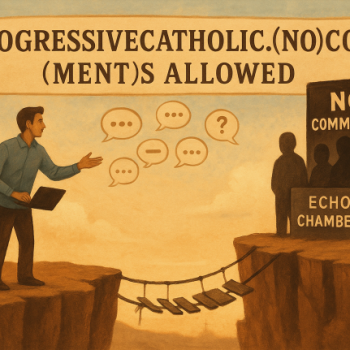Do allegations against author negate a great book?
Do evil deeds categorically undo all the good stuff?
It’s a question I’ve been hashing over since reading — to my absolute horror — a July 1 report in the New York Times about the author of what has fast become one of my favorite books: Father Joe, The Man Who Saved My Soul.
A few months back, I gave British satirist Tony Hendra’s surprisingly stirring spiritual memoir of his 40-year friendship with a Benedictine monk (Father Joe) on the Isle of Wight a rather glowing review in the Sun-Times’ book section. I called Hendra “the most interesting — and unlikely — mystic you’ve never heard of.”
Father Joe had moved and inspired me deeply. I recommended it to countless friends and strangers. Last month, I told readers of this column if they had one book to read this summer, it should be Father Joe. And I had plans to buy a case of the books to give away as Christmas presents.
Then came the Times’ report.
According to the Times, Hendra, 62, may have sexually abused one of his daughters on several occasions about 30 years ago.
Hendra’s 39-year-old daughter, Jessica, the second child of his first marriage, says her father molested her over a number of years, at least once when she was as young as 7.
The author has denied his daughter’s allegations.
Memory is subjective and often elusive. And there are such things as false memories.
In the last few years, I’ve had occasion to speak to dozens of victims of childhood sexual abuse and have listened to their wrenching stories. Many have gone on to win lawsuits against and settlements from their abusers. A scant few have later retracted their allegations.
I believe I know what it sounds like when they’re telling the truth.
And it sounds like Jessica Hendra is telling the truth.
The memories she describes are not vague. There are times, places, and graphic descriptions of abuse. Her mother — who divorced Hendra in the 1980s — corroborates at least one of her daughter’s stories, according to the Times report.
Several friends, therapists and other confidantes told the paper of hearing Jessica Hendra talk consistently over the years of the alleged abuse she suffered at the hands of her father.
Maybe Jessica Hendra is terribly mistaken. But maybe she isn’t.
I don’t know if Tony Hendra sexually abused his daughter. Really, only he, his daughter and God know that for sure.
But I will say this: If Hendra were a Roman Catholic priest — at least in the United States — he would very likely have been removed from ministry by now.
But he’s not a priest. He’s an author, a humorist, a sometimes actor and an admittedly world-class prat.
Or, as he describes himself on Page 228 of Father Joe, “a self-pitying fuckhead asshole.”
“Well, er . . . I’ve been drunk many times and done a lot of drugs. Had sex with many women, um, some pretty weird things there,” Hendra recalls (in the book) confessing to Father Joe Warrilow at the Benedictine monastery on the Isle of Wight during his first proper act of contrition in nearly 30 years. “Okay, um, I’ve committed many acts of blasphemy . . . written many things that hurt people, haven’t always worked as you said, unselfishly and thankfully, er, pride, pretty bad pride, and gluttony, um, anger, rage, lots of that. Did I say blasphemy?”
In Father Joe, Hendra doesn’t say anything about abusing his children. (He had two daughters with his first wife, and has three young children with his second.) But he does say, “no father could have been more selfish” when describing his first family, and later writes that he hopes his second wife’s amicable relationship with his older daughters might allow him “to repair some of the damage I’d done.”
Recently I heard from an anguished reader reeling from allegations that his favorite priest, the man who had been his spiritual mentor, confessor and friend, was also a moral monster who raped children.
The man didn’t believe the allegations, despite graphic, wrenching accounts of abuse offered publicly by the priest’s alleged victims. He said he believed the priest, who vehemently denied the allegations.
But — oh, God — what if they were true?
Did that mean everything the priest had ever told him about God, everything the man thought the priest stood for spiritually, all the good things he’d taught about faith and grace and unconditional love — were just a bunch of lies, he asked.
Was all of it a sham?
No, I told him.
Indeed, if the abuse really happened, it’s horrible. Even unforgivable, at least to us. But it’s not to God, as I understand it.
And the sin — the evil acts — don’t invalidate the blessings and the good acts that were perpetuated by the same person.
Thousands of people have come to know God in a very real, genuine way by watching televangelists who would take their last dollar if given the opportunity.
The Rev. Jim Bakker, for example, may have been a scam artist, but that doesn’t mean the gospel message he preached was a lie.
Sure Bakker was a cheat and a fraud. But somehow that didn’t stop God from working through him.
We’re all fallen and faulted in one way or another. Some sins just make us wince more than others.
And with good cause.
Violating a child’s innocence through sexual violence is about the worst thing I can imagine.
So if Hendra is a molester, does that make Father Joe worthless?
Or does it in some way make the book’s message strangely more poignant?
Perhaps Father Joe, the man Hendra calls “a lighthouse of faith in the night,” was trying to save the author from more than we realized. Or from more than that dear Benedictine priest knew himself.
Whether the wretched acts of abuse Hendra’s daughter alleges are the godawful truth or phantoms born of false memory, the tale of redemption and grace told in Father Joe remains undiminished.
The story Hendra tells, despite the subtitle of his book, is not really about how his own soul was saved.
It’s about how every soul — no matter how damaged or how pure — needs redemption. And can be redeemed.
By grace. Untempered by what we’ve done, or may do in the future.
So, read Father Joe. Read it with the allegations of abuse in mind, whether you believe them or not. Pass judgments if you like.
But please see the moral of the story for what it is.
I don’t think I’ll be buying a case of Hendra’s memoirs as I had planned. Somehow that seems excessive now.
But I’ll still lend my copy to anyone who asks, just on the off chance that the story of this surely fallen man who unworthily found the road to salvation might help readers do the same.
Copyright © The Sun-Times Company
All rights reserved. This material may not be published, broadcast, rewritten, or redistributed.














